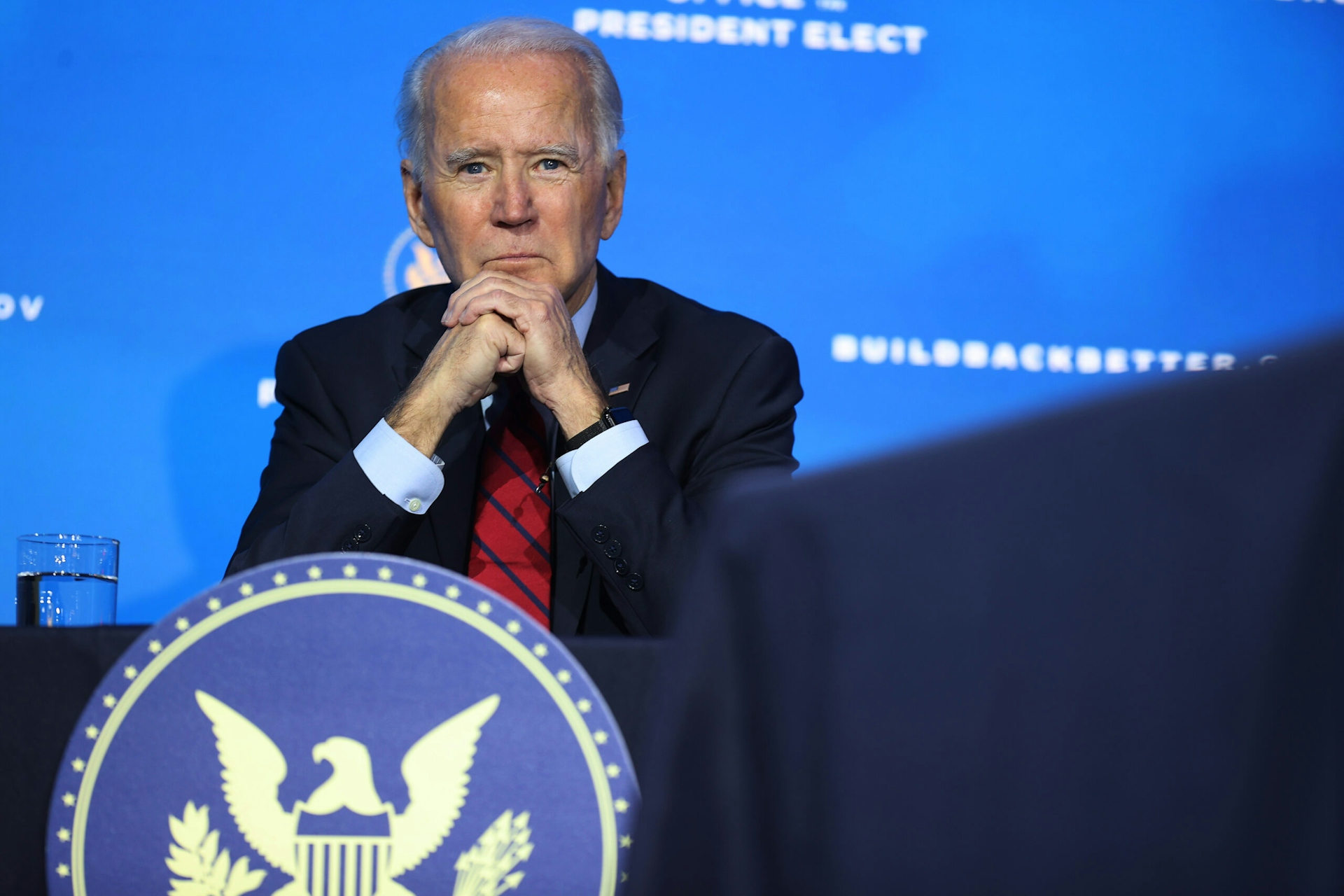Energy
Nuclear Experts Expect Biden to Pick Up Where Trump Left Off, With Bigger Focus on Zero-Carbon Bona Fides

While most agencies in the executive branch are heading for dramatic policy change when President-elect Joe Biden takes office next month, the cohort of people working on nuclear energy promotion anticipates few bumps in the road. What may change, however, is the rhetoric behind pushing nuclear, especially with advanced technology and small modular reactors.
Progress on this front is already underway, having started in earnest during the Obama administration and progressing with a “high degree of continuity” in the Trump years, according to John Kotek, vice president of policy development and public affairs at the Nuclear Energy Institute and formerly the assistant secretary for nuclear energy under President Barack Obama.
“I do expect to see the incoming administration stay pretty consistent in terms of their approach to advanced reactor technology development,” he said.
The Biden energy plan calls for establishing a new cross-departmental Advanced Research Projects Agency (ARPA-C) focused on climate and developing technologies to help the country meet the president-elect’s target of 100 percent clean electricity by 2035, including the production of “small modular nuclear reactors at half the construction cost of today’s reactors.”
Marc Nichol, NEI’s senior director of new reactor deployment, said that many companies -- including NuScale Power and Oklo Inc. -- are already moving into the licensing phase for new reactors, which can take two to three years.
“And then after licensing you get into construction, and construction will last a couple of years, and then operations,” Nichol said. “So following those stages, we're expecting to see the first advanced reactors come online sometime in the late 2020s.”
“The timing is actually coming together quite nicely,” Kotek added, referencing the goals of Biden’s clean electricity plan. “And the fact that we're seeing so much interest in decarbonizing, not just the electric sector but the broader economy, I think will continue to accelerate interest in a next generation of nuclear.”
Kotek highlighted the fact that nuclear’s zero-carbon nature gives it a new kind of clout in an administration focused on decarbonizing. Whereas the Trump administration’s strategy has been focused on the national security implications of expanding the technology, the industry is “interested to see more recognition of the zero-carbon attribute that nuclear energy delivers.”
“So to the extent that the new administration and the new Congress are pursuing policies that actually reward nuclear for what it delivers, I think that's certainly all for the good for the nuclear energy sector,” Kotek said.
In order to accelerate the development and exportation of advanced nuclear technology in the coming years, stakeholders are hopeful that Biden will appoint staff to nuclear-specific positions beyond its typical sphere within the Department of Energy.
“A coordinated approach and strategy is going to be key” to expanding the use of nuclear and especially advanced nuclear, said Jackie Kempfer, a senior policy adviser at the think tank Third Way who focuses on nuclear.
Among the ideas advocates are pushing are reinstating a nuclear specialist on the National Security Council -- a role that the Trump administration eliminated -- as well as creating a new position on the National Economic Council. This coordinated effort comes as the country continues its pursuit of exporting nuclear technology in the near future, with the understanding that many parts of the executive branch will likely have to play a part in that process.
Considering Biden’s hints of a White House climate office, Kempfer added that there’s interest in making sure nuclear energy is represented in that context.
This focus on establishing relationships with countries like Kenya and Ghana based on selling U.S. nuclear energy technology is one with broad appeal, championed by both the Trump administration and by those with progressive climate goals at the center of their nuclear strategy.
“There are over 30 countries interested in pursuing commercial nuclear power, and almost all of them will import their first reactors,” Dr. Jessica Lovering, co-founder of the progressive nuclear policy group Good Energy Collective, said in an address to the American Nuclear Society’s annual winter meeting. “By revitalizing the nuclear new build program in the U.S., we have a chance of partnering with some of these newcomer countries. But it will take a holistic, whole-of-government approach to be successful.”
Congress has historically played a major part in appropriating funds for research and development of nuclear technologies, a role that the industry hopes to see continue. While nuclear is controversial for a number of reasons, it is an energy source with bipartisan support, even if its backers have different reasons for supporting its expansion.
And while Kempfer applauds DOE’s progress so far with its $230 million Advanced Reactor Demonstration Program, she points out that its continuation is dependent on annual appropriations, never a sure bet in a Congress replete with partisan bickering. She said that those in the nuclear space hope to see the passage of either the Nuclear Energy Leadership Act or the Nuclear Energy Research and Development Act, either of which would authorize permanent funding for advanced nuclear development.
The most likely vehicle for these kinds of bills, Kempfer said, is Sen. Lisa Murkowski’s (R-Alaska) American Energy Innovation Act, which is currently stalled despite the senator’s earlier assertion that she would bring it to a vote before the end of this congressional term.
The Biden transition team did not respond to a request for comment by the time of publication.
Lisa Martine Jenkins previously worked at Morning Consult as a senior reporter covering energy and climate change.